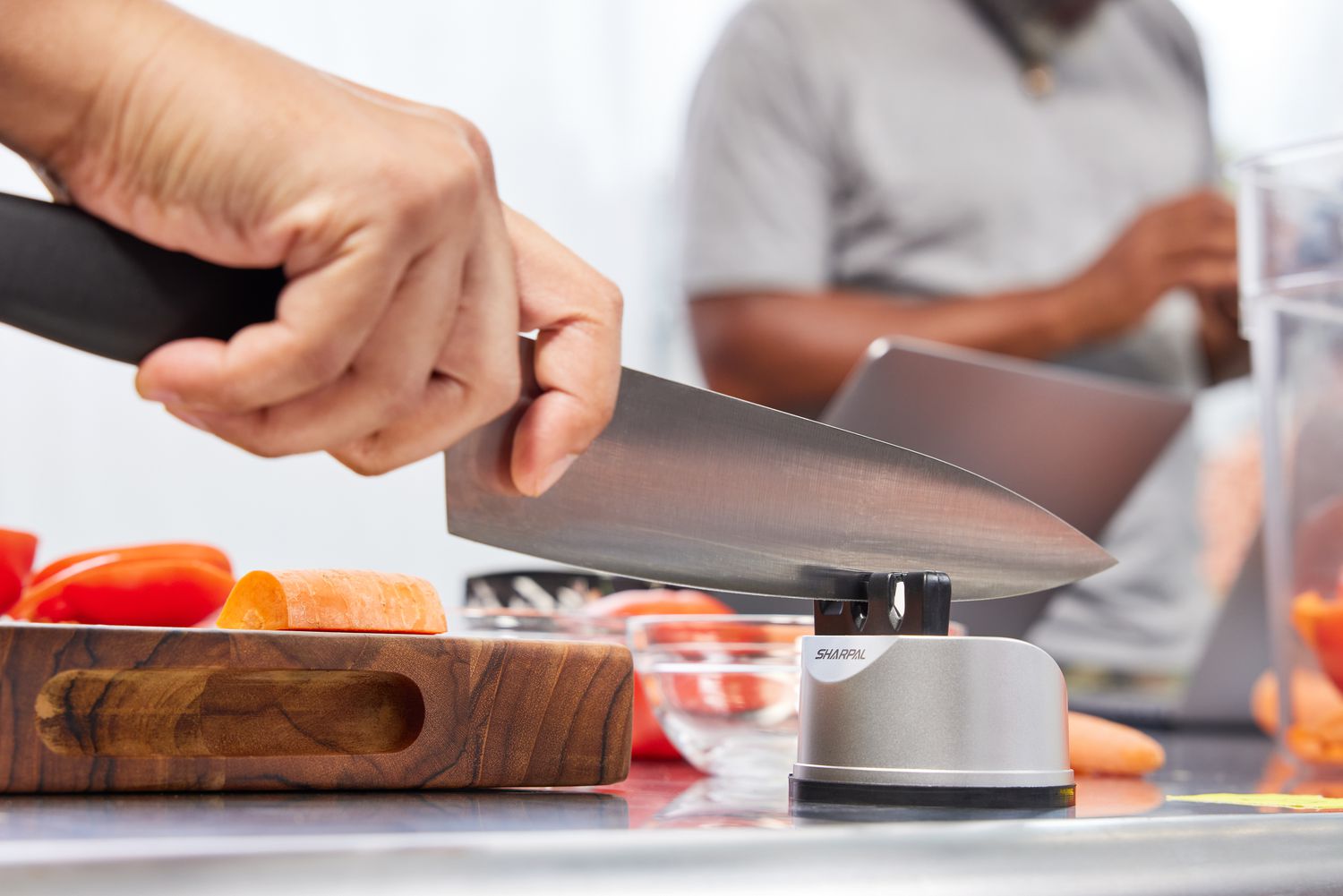Many people are terrified of sharp kitchen knives. However, contrary to popular belief, the sharper a knife is, the safer it will be to use. Of course, this is provided the user has good knife skills. Also, it is important to first polish your knife skills and then handle a sharp blade. There is a lot more that goes in when cutting, chopping, or processing food ingredients.
The sharp knives vs. dull knives debate has been raging for a long time. However, most of it comes down to who is using the knives and how. Yet, sharper knives provide much greater applications and safety when you use them right. So, make sure to read through to find out more about kitchen knives. This guide will help you a lot:
Common Types of Dull Knives
It is important to understand the different types of dull knives. Also, it is common for people to not even realize when their knives have become dull already. However, when the knife blade dulls out, it will only become worse if left unchecked. Some most common types include:
Terribly Dull Knife Blades
A lot of the time, regular aging of a knife blade will dull it out. Also, not using a knife over long periods of time tends to dull the edge as well. However, it is easy to tell when you have a terribly sharp knife. When cutting a tomato, if it is getting pushed down and you have to pull off the cut part, it is a sign of a terribly dull knife blade. These knives should be sharpened quickly. Proper sharpening is required to sharpen up the blade again.
Fake Stainless-Steel Knives
A lot of the knife sharpness depends on the quality of the materials. Especially, the type of steel and metal will play a vital role. Fake stainless-steel knives are known to become dull too quickly. Also, most fake stainless-steel knives aren’t very sharp to begin with. The metal alloy used in most of these is incapable of becoming very sharp. So, it is important to buy a genuine knife to start with. Invest in a Damascus knife that will keep sharp for longer.
Cheap High Carbon Steel Knives
Now, there are different types of steels available as well. Almost all manufacturers use some kind of alloy. Carbon steel is very commonly used. However, more carbon is added to keep the costs down. Also, steel with more carbon content in it is more likely to bend and dull sooner. High stainless-steel content and lower carbon content knives tend to fare better. So, make sure to know your steel before buying those kitchen knives. High-carbon steel will dull quickly.
Chipped Knife Edges and Blades
With regular use, knives may get their edges and blades chipped. This usually happens with knives that are used for bone cutting. Also, dishwashers tend to cause chipped knife edges and blades as well. The easiest thing to do is to see the blade closely. Experts can also run their fingers at an angle to the blade to feel chips and bends as well. Micro-bends and chips can make the blades very dull. These are the worst when it comes to cutting regular ingredients like meats, tomatoes, or vegetables.
The Sharper the Knife, the Safer It Will Be
It is easy to think of sharp knives being a hazard. However, they are not when you know how to use them. Dull knives are more of a safety concern than sharp knives. Keeping your knife blade sharp at all times is very important and will make cutting and chopping much easier and quicker. Here are some interesting facts to know:
Effortless Cutting vs. Forced Cutting
Now, the first difference you will feel is in the cutting and chopping. With sharp knives, you can cut through and chop most ingredients effortlessly. Meats, tomatoes, and some vegetables are the hardest to cut. Dull knives make their dull blades feel when going through such ingredients. There will be a lot of force required to go through softer ingredients. Also, this is where convenience comes into play. You will be spending more time with dull blades than with sharper ones.
Efficient, Safe Chopping
Safety is one of the biggest concerns in the kitchen. Sharper knives are actually safer for cutting and chopping. As you will not require much force to do the task, there is less likelihood of the knife blade slipping and cutting what it is not supposed to cut. Dull knives tend to give the most cuts and injuries to people handling them. Sharp knives will run through ingredients easily. However, more force required for dull knives will make the job more difficult and riskier.
Tips to Keep Your Knives Sharper for Longer
- Wash with Hands – Machine washing or dishwasher washing for knives tends to dull them. The blade comes in strong contact with whatever is in the dishwasher. Hand wash for longevity.
- Storing Kitchen Knives – How you store your kitchen knives will play a vital role. Do not just throw them in drawers filled with other hard objects. Drawer organizers, metal knife hangers, or blade tuck-in knife stands are the best.
- Dry Before Storing – When you store still-wet knives, their sharp blades can pick up the smallest rust. This can dull the edge. Dry well before storing.
- Use a Soft Cutting/Chopping Board – Go for cutting/chopping boards made from wood or plastics. Hard metal boards or other hardy materials will bend/chip the edge making it dull
- Regular Homing and Sharpening – Make sure to home and sharpen your knife edge regularly. Ideally, light honing should be done before every use. Proper sharpening should be done every 3-4 weeks to keep the knife sharper for longer.
Bottom Line
When it comes to safety, sharper knives are always the better choice. Chipped knives and dull blades tend to be less safe and more prone to cuts and injuries. Keep your kitchen knives sharp for longer by selecting the right materials and keep honing and sharpening them. Store them right for the sharpness to last much longer.





